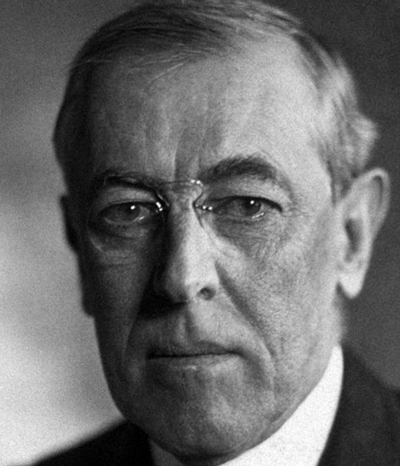The views expressed in our content reflect individual perspectives and do not represent the authoritative views of the Baha'i Faith.
A world full of human happiness is not beyond human power to achieve. – Bertrand Russell
The basic assumption underlying the realist approach is that rivalry and strife among nations in some form or the other is natural and not a mere accident. – Dr. Mohinder Kumar
True civilization will unfurl its banner in the mid-most heart of the world whenever a certain number of its distinguished and high-minded sovereigns—the shining exemplars of devotion and determination—shall, for the good and happiness of all mankind, arise, with firm resolve and clear vision, to establish the Cause of Universal Peace. They must make the Cause of Peace the object of general consultation, and seek by every means in their power to establish a Union of the nations of the world. – Abdu’l-Baha, The Secret of Divine Civilization, p. 64.
In the realm of international relations and diplomacy, two traditions exist—the idealist approach and the realist approach.
The realist approach emphasizes the struggle for power among nations as a natural, rational phenomenon, and sees absolute sovereignty, national power and national interest as justifiable and reasonable goals. Diplomatic realists view human beings as contentious, power- and dominance-seeking creatures by nature, and believe that the struggle for power will always be an eternal reality. This basic understanding of human nature leads realists to believe that peace can be only be preserved by fear, and by maintaining the threat of large national armies and weapons stockpiles. Well-known international relations realists include Max Weber, Reinhold Niebuhr, Hans J. Morgenthau and Henry Kissinger.

Woodrow Wilson
The idealist approach, by contrast, emphasizes the eradication of war, violence and the use of force among nations, and sees absolute sovereignty, national power and national interest as hindrances to that peaceable goal. Diplomatic idealists view human welfare and the global advancement of civilization as the concerns of everyone; see violence, conflict and war as the problem rather than the solution; and believe that the international community can and should work together to eliminate all of the factors that lead to war. Well-known international relations idealists include Mahatma Gandhi, Bertrand Russell, Woodrow Wilson, Aldous Huxley, and Margaret Mead. Baha’u’llah, the prophet and founder of the Baha’i Faith, first taught the idealist approach to international relations in the middle of the 19th Century.
As you can see from the three quotes at the beginning of this essay, Baha’is favor the idealist approach, understand humans as primarily spiritual beings, and believe that absolute national sovereignty will one day evolve into a “Union of the nations of the world.” Just as we have gradually come to understand and appreciate the organic unity, ecological interdependence and oneness of the natural world, Baha’is believe that we will soon realize and apply that same underlying principle of organic unity to the world of human civilization:
As this is true of material phenomena, how much more evident and essential it is that oneness should characterize man in the realm of idealism, which finds its expression only in the human kingdom. Verily, the origin of all material life is one and its termination likewise one. In view of this fundamental unity and agreement of all phenomenal life, why should man in his kingdom of existence wage war or indulge in hostility and destructive strife against his fellowman? Man is the noblest of the creatures. In his physical organism he possesses the virtues of the mineral kingdom. Likewise, he embodies the augmentative virtue, or power of growth, which characterizes the kingdom of the vegetable. Furthermore, in his degree of physical existence he is qualified with functions and powers peculiar to the animal, beyond which lies the range of his distinctive human mental and spiritual endowment. Considering this wonderful unity of the kingdoms of existence and their embodiment in the highest and noblest creature, why should man be at variance and in conflict with man? Is it fitting and justifiable that he should be at war, when harmony and interdependence characterize the kingdoms of phenomenal life below him? The elements and lower organisms are synchronized in the great plan of life. Shall man, infinitely above them in degree, be antagonistic and a destroyer of that perfection? God forbid such a condition! – Abdu’l-Baha, The Promulgation of Universal Peace, p. 350.
The Baha’i teachings tell us that we won’t find the solutions to the world’s problems in the triumph of one group, class or nation at the expense of others. Clearly, historical and political theories that emphasize national, racial or class superiority have always failed to bring about unity and peace. Instead, history does show that human evolution towards higher ideals and forms of moral conduct leads to a wider and more inclusive organization of civilization. That progress comes, the Baha’i teachings say, from the illumination brought to humanity by the most recent prophet of God:
Likewise in the spiritual realm of intelligence and idealism there must be a center of illumination, and that center is the everlasting, ever-shining Sun, the Word of God. Its lights are the lights of reality which have shone upon humanity, illumining the realm of thought and morals, conferring the bounties of the divine world upon man. These lights are the cause of the education of souls and the source of the enlightenment of hearts, sending forth in effulgent radiance the message of the glad-tidings of the kingdom of God. In brief, the moral and ethical world and the world of spiritual regeneration are dependent for their progressive being upon that heavenly center of illumination. It gives forth the light of religion and bestows the life of the spirit, imbues humanity with archetypal virtues and confers eternal splendors. This Sun of Reality, this center of effulgences is the prophet or Manifestation of God. Just as the phenomenal sun shines upon the material world producing life and growth, likewise the spiritual or prophetic Sun confers illumination upon the human world of thought and intelligence, and unless it rose upon the horizon of human existence the kingdom of man would become dark and extinguished. – Abdu’l-Baha, Baha’i World Faith, pp. 254-255.
















Comments
Sign in or create an account
Continue with Googleor